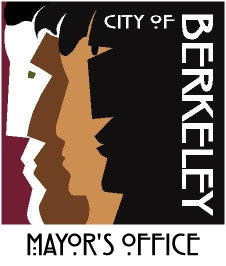Berkeley Mayor Introduces First-in-California Initiative to Reimagine Public Safety
May 3rd, 2022
BERKELEY–Today, Berkeley Mayor Jesse Arreguín introduced legislation to create a new holistic Department of Community Safety. The initiative is the first of its kind in California and would require the design and development of the new Department to oversee and coordinate services by both sworn, and new unsworn civilian safety responders. The City Council will vote on the proposal at a special meeting on May 5th.
“The vast majority of calls that police are asked to respond to are non-criminal matters,” said Mayor Jesse Arreguín. “Whether it’s a blocked driveway or a college house party, asking police to respond to non-criminal matters reduces response times to incidents that genuinely require someone with a badge and a gun. That makes us all less safe.”
According to a recent report from the Berkeley City Auditor and also the National Institute of Criminal Justice Reform (NICJR), 81% of calls for service are for non-criminal events, and police spend 52% of all their time responding to these calls. NICJR’s assessment indicated that 50% of all calls for service can be responded to with no police involvement, with another 18% requiring police to be present but to serve in a support rather than lead role. NICJR therefore recommended that alternative response options be developed for the 50% of calls for service that do not require a law enforcement response.
“The National Institute for Criminal Justice Reform was proud to partner with the City of Berkeley and the Reimagining Public Safety Taskforce to develop a plan to transform public safety in the city, provide deeper investments in community, improve policing, and make Berkeley a safer and more equitable place to live,” said David Muhammad, Executive Director of the National Institute for Criminal Justice Reform. “I appreciate and support the efforts of Mayor Arreguín in working to implement the recommendations of NICJR and the Taskforce. The proposed creation of the Department of Community Safety aligns with the City Council and community’s intention to reimagine public safety in Berkeley.”
A new Department of Community Safety would coordinate the dispatch, resource allocation, operations and reform across police, fire, emergency medical services, traffic, code enforcement and the Specialized Care Unit (SCU). This will ensure alternative responders are dispatched so police resources are better focused on calls for service that require an armed response. The new department will also oversee the assessment and execution of alternative and relevant municipal and community-based resources that will be deployed across these departments.
“We know who to call when someone robs a bank, but we don’t know who to call when someone’s having a mental health crisis on the corner,” said Mayor Arreguín. “We would never ask a paramedic to go into a burning building, yet we’ve asked police to respond to the mentally ill, the addicted and the homeless. We’ve spent an exorbitant amount of taxpayer resources trying to force a square peg into a round hole. It hasn’t been effective, but it has made the job of policing far more difficult and dangerous.”
While mental illness, addiction and homelessness are not crimes, these public health and social issues can make people feel less safe. To better coordinate our response to these issues, the department will oversee a growing team of mental health and crisis counselors called the Specialized Care Unit (SCU) that will work to treat, transport and triage services for individuals suffering from behavioral health issues and homelessness.
In addition to overseeing the city’s reactive responses across all safety departments, the department will also be responsible for overseeing proactive efforts such as the Ceasefire violence intervention program.
“After a crime has occurred it’s too late,” said Mayor Arreguín. “Harm and hurt have already occurred, there’s a victim, and someone’s life may be changed forever. Safety is not just how we respond after a crime has already occurred, it’s also how we prepare and prevent crimes from happening in the first place.”
The department will also compliment the BerkDOT initiative which seeks to civilianize traffic enforcement. That effort will enhance pedestrian and bicyclist safety by focusing enforcement at problem intersections rather than relying on police to make stops on their patrols when they happen to encounter a traffic violation. BerkDOT will also free up police resources and reduce the prevalence of pretext stops.
“The Mayor’s proposal is a logical, and potentially transformative model to make the critical reimagining proposal tangible,” said Nathan Mizell, Chair of the Reimagining Public Safety Task Force. “While there has been healthy debate throughout the reimagining process, there’s little doubt that advancing many of the of the goals of Reimagining while simultaneously proposing a permanent structure that places the City on the right path.”
The process of implementing this new department that will oversee all these functions will likely yield additional reforms and changes, big and small, from the name it bears to the way it carries out its mission.
